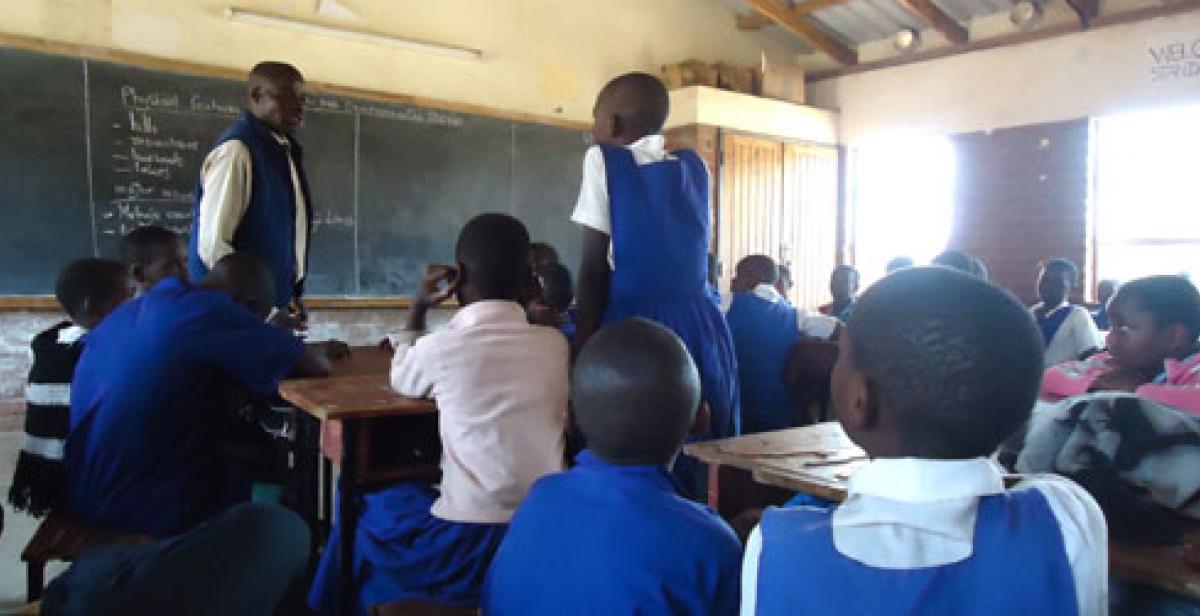It has been a very Malawian week where we’ve experienced the reality of the petrol shortages (having to wait in the heat with cans and using help from the police to get the fuel we needed to travel to our projects), power cuts (we’re getting better at lighting charcoal to cook on with just a plastic bag and a match), as well as storms and meeting lots more people we would be working with and observing existing projects.
At the start of the week we visited a support group ran by MANERELA+. They were incredibly welcoming, dancing and presenting each one of us with a rose - the green to symbolise growth, and the blue to symbolise peace. One of our objectives is to help reduce the stigma of HIV, and we were told that by “Muzungos” [white people/foreigners] just visiting the group, stigma is automatically reduced as people can see the infection is not something to be ashamed of and cannot be contracted by simply hugging a HIV positive person.
We heard how the support group really made a difference to the members, not only emotionally but physically too. The group members have been educated about the importance of nutrition and how things like soya milk can increase the health of someone with HIV massively. A lady went from having a CD4 count low enough to be classed as AIDs to having a count above the average of a healthy person, which means instead of being bed-bound and more prone to other infections, she is strong and able to live a close to normal life. It was amazing to see how positive and enthusiastic the group were in supporting each other and learning new things.
We returned to the Youth Group and ran the session. We started with an icebreaker which got everyone more familiar with each other and boosted the energy in the room. We then split the youths into groups and asked them to think about why they joined the group and what they wanted to get out of it. We found that the majority of people came as it kept them off the street and out of bars and instead they could learn about HIV, socialise and take part in drama activities.
We also learnt that while they all knew about how to prevent HIV and how to get tested, the majority of the youths didn’t know about the science behind the infection or about nutritional needs. These are things that we can introduce in the coming weeks. We gave them a suggestion box, where people can anonymously put in suggestions or questions for the group as a way for people to voice their opinions. We ended with a question and answer session where we were able to learn more about each others' cultures.
Towards the end of the week we went to Jenda to see existing projects that worked to stop child labour. Child labour has direct links with HIV, as often when a child is working it is because their parents are not able to provide for them, having either passed away or being too ill from the disease. The project finds children involved in child labour and looks at giving them the necessary equipment and clothing so they can continue their education. If the child is too old to go back to the class that they left, they are able to go to a multi-purpose learning centre where they can be trained in vocational skills such as carpentry. The project then looks at supporting the family by either providing them with livestock as a source of income or helping them to set up a small business.
In Jenda we visited three schools involved and two multi-purpose learning centres, where they had good structures set up to support the children and to ensure the children were attending school. We also heard from some beneficiaries who were incredibly grateful for the project and realized the importance of education to shape their children’s futures.
Next week we will be visiting more projects as well as implementing our new ideas on projects that we have already visited.
By ICS volunteer Charlotte Isaac. We don't have photos yet from Charlotte's team - this photo of a school in Malawi was taken by a previous team of ICS Progressio volunteers.



